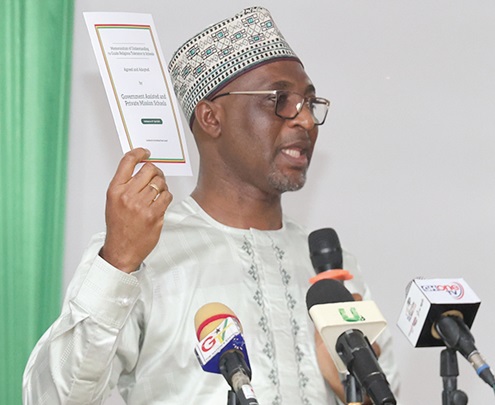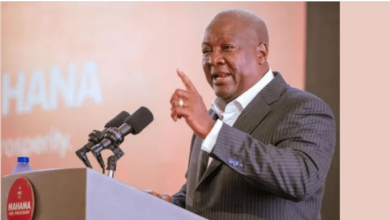Faith must not be imposed — Interior Minister launches MoU on religious tolerance

The Interior Minister, Muntaka Mohammed-Mubarak, has called on stakeholders to embrace religious tolerance in schools to strengthen social cohesion and protect Ghana’s longstanding tradition of peaceful coexistence.
Speaking at the launch of a Memorandum of Understanding (MoU) for government-assisted faith-based schools, he stressed the need to celebrate, not just tolerate, religious differences.
“By so doing, we will strengthen the partnership between government, mission schools, and communities, upholding the values of peace and unity in nurturing our future leaders,” he said.
The MoU — developed by the Conference of Managers of Education Units (COMEU) and facilitated by the National Peace Council — was signed by 13 major religious bodies, including the Catholic Church, the Presbyterian Church of Ghana, the Office of the National Chief Imam, the Methodist Church, the Anglican Church, the Assemblies of God, and the Ahmadiyya Mission. It sets clear guidelines to prevent religion-based discrimination, manage conflicts, and ensure a safe learning environment.
Mr Mohammed-Mubarak cautioned schools against policies that force students to adopt faith-based observances, noting that “faith must not be imposed, but lived with respect for others.” Drawing on both Christian and Islamic teachings, he said true religious freedom requires balance, fairness, and empathy.
He acknowledged rising tensions over issues like hijab wearing, fasting, and participation in prayers, saying these incidents “pose a risk to the unity and inclusivity of our educational landscape.”
“We cannot allow them to undermine the legacy of quality education and moral integrity that mission schools have given to our country,” he added.
Deputy Education Minister Dr Clement Apaak pledged the ministry’s collaboration with stakeholders to roll out sensitisation programmes on the MoU. He described education as “a sacred space where every child, regardless of religious background, should feel respected, valued, and empowered.”





